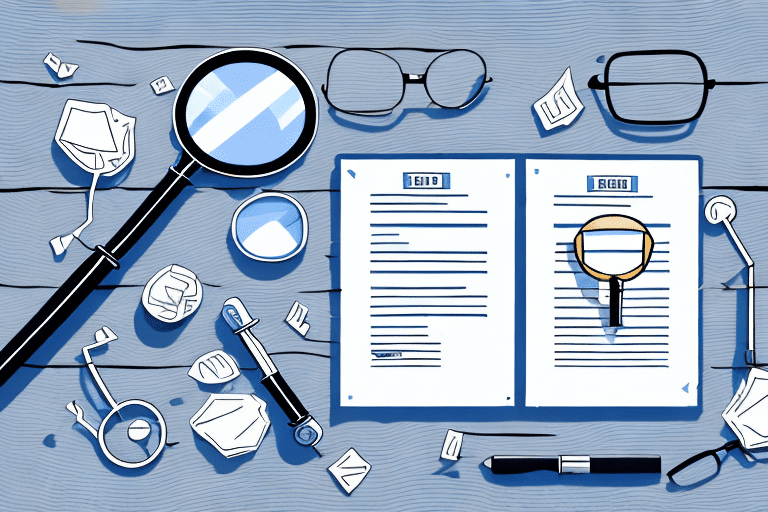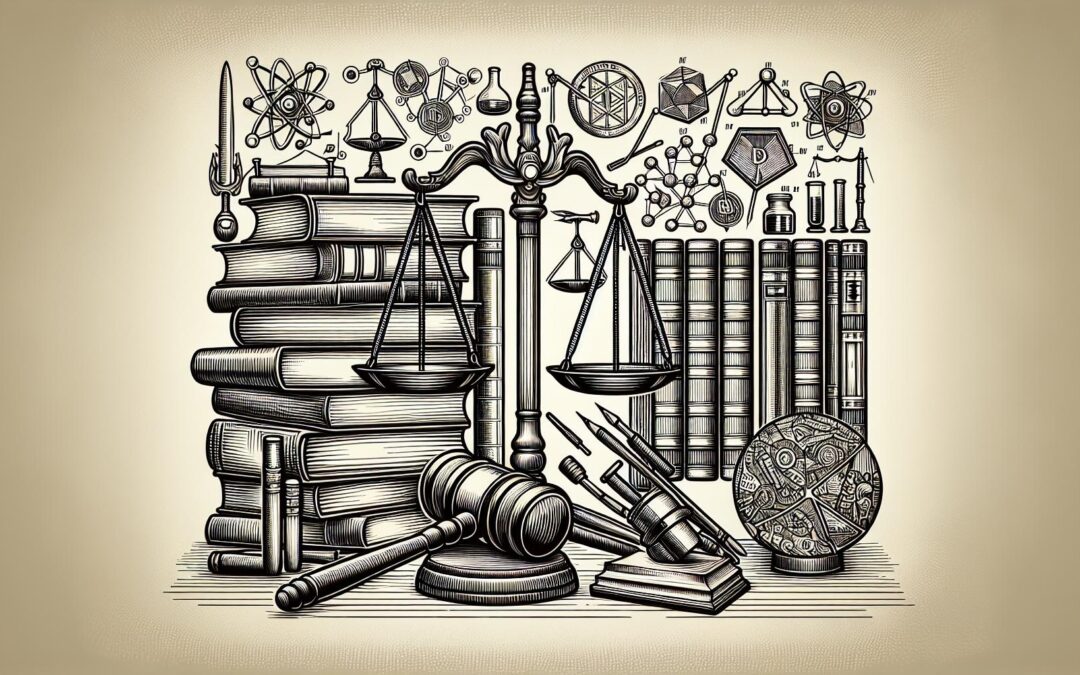Preparing for the Patent Bar Exam can be a daunting task. With its complex structure and demanding eligibility criteria, it’s vital to approach the exam with the right knowledge and resources. A Patent Bar Prep Course can provide the guidance and support necessary to succeed, helping you navigate through the exam’s intricacies and achieve your goals.
Understanding the Patent Bar Exam
Before delving into the specifics of a Patent Bar Prep Course, it’s essential to understand the importance and structure of the Patent Bar Exam. This exam is administered by the United States Patent and Trademark Office (USPTO) and is a critical step towards becoming a registered patent agent or attorney.
Importance of the Patent Bar Exam
The Patent Bar Exam is designed to assess the knowledge and skills required to practice patent law. Passing this exam is a prerequisite for individuals who wish to represent clients before the USPTO. With a strong understanding of patent law, you can assist inventors in securing intellectual property rights, enhancing your career prospects in the process.
Intellectual property rights play a crucial role in today’s innovation-driven world. Patents protect inventions, granting inventors exclusive rights to their creations. By passing the Patent Bar Exam, you demonstrate your competence in understanding the complexities of patent law, enabling you to guide inventors through the patent application and prosecution process.
Moreover, becoming a registered patent agent or attorney opens up a wide range of career opportunities. You can work in law firms specializing in intellectual property, corporate legal departments, or even start your own patent law practice. The demand for professionals with expertise in patent law is constantly growing, making the Patent Bar Exam an important milestone in your legal career.
Structure of the Patent Bar Exam
The exam consists of multiple-choice questions, with a total of 100 questions to be answered in a 6-hour time limit. These questions cover topics like patent laws, rules, and procedures, as well as other areas related to patent application and prosecution. Understanding the exam structure is crucial in formulating an effective study plan and strategy.
Each question in the Patent Bar Exam is carefully crafted to assess your knowledge and understanding of patent law concepts. The questions may present hypothetical scenarios or require you to interpret specific sections of patent laws and regulations. It is essential to develop strong analytical and problem-solving skills to navigate through the exam successfully.
Preparing for the Patent Bar Exam requires a comprehensive study plan that covers all the relevant topics. It’s important to allocate sufficient time to study patent laws, rules, and procedures, as well as practice answering multiple-choice questions. Many aspiring patent agents and attorneys choose to enroll in a Patent Bar Prep Course to receive structured guidance and access to study materials.
During the exam, time management is crucial. With 100 questions to answer in 6 hours, you must allocate your time wisely to ensure you have sufficient time to read and analyze each question carefully. It is advisable to practice time management techniques during your preparation to build confidence and efficiency.
Additionally, staying up-to-date with the latest developments in patent law is essential. The USPTO regularly updates its rules and procedures, and being aware of these changes can give you an edge in the exam. Engaging in continuous learning and staying connected with the patent law community through professional associations and online forums can help you stay informed about any updates or changes.
In conclusion, the Patent Bar Exam is a significant milestone for individuals aspiring to practice patent law. By understanding the importance of this exam and its structure, you can effectively prepare and increase your chances of success. With a strong foundation in patent law, you can embark on a rewarding career path, assisting inventors in protecting their innovations and contributing to the advancement of technology and society.
Eligibility Criteria for the Patent Bar Exam
Before enrolling in a Patent Bar Prep Course, it’s important to ensure that you meet the eligibility requirements set by the USPTO.
Obtaining a patent is a complex process that requires a deep understanding of scientific and technical concepts. To ensure that only qualified individuals are granted the authority to practice before the United States Patent and Trademark Office (USPTO), the agency has established specific eligibility criteria for the Patent Bar Exam.
Educational Requirements
To be eligible for the Patent Bar Exam, you must have a scientific or technical background. Typically, this requires a bachelor’s degree in a field such as engineering, biology, chemistry, or physics. The educational requirement serves as a foundation for aspiring patent attorneys and agents, as it demonstrates their ability to grasp complex scientific and technical concepts.
By obtaining a bachelor’s degree in a relevant field, candidates develop a strong knowledge base that will be essential in their future patent law careers. Engineering graduates, for example, gain a deep understanding of the principles behind inventions, while biology and chemistry graduates acquire the necessary expertise to analyze and protect pharmaceutical and chemical innovations.
Meeting the educational requirement is not only a prerequisite for taking the Patent Bar Exam but also an indication of the commitment and dedication required to succeed in the field of patent law.
Experience Requirements
In addition to educational qualifications, the USPTO also requires candidates to possess practical scientific or technical experience. This experience can be acquired through employment in a scientific or technical position, providing a solid foundation for understanding patent-related matters.
Working in a scientific or technical role allows aspiring patent attorneys and agents to gain hands-on experience in their respective fields. This practical experience not only enhances their understanding of complex scientific concepts but also equips them with the skills necessary to effectively communicate with inventors and understand the intricacies of their inventions.
By combining theoretical knowledge with practical experience, candidates who meet both the educational and experience requirements demonstrate a comprehensive understanding of the patent process. This ensures that they are well-prepared for the challenges they will face in their patent law careers.
Moreover, the experience requirement also serves as a way for the USPTO to assess an individual’s commitment to the field of patent law. By requiring practical experience, the agency ensures that candidates have actively engaged in scientific or technical work, further validating their dedication to the profession.
In conclusion, the eligibility criteria for the Patent Bar Exam encompass both educational and experience requirements. By meeting these criteria, aspiring patent attorneys and agents demonstrate their ability to comprehend complex scientific and technical concepts, as well as their commitment to the field of patent law.
Overview of the Patent Bar Prep Course
A Patent Bar Prep Course is a comprehensive program designed to help candidates study effectively and efficiently for the exam. It provides aspiring patent attorneys with the necessary knowledge and skills to navigate the complex world of patent law.
Studying for the Patent Bar Exam can be a daunting task, as it requires a deep understanding of patent laws, rules, and procedures. That’s where a Patent Bar Prep Course comes in. These courses are specifically designed to guide candidates through the vast amount of material they need to cover in order to pass the exam.
Course Structure and Content
These courses provide a structured approach to studying for the Patent Bar Exam. They cover a wide range of topics, including patent laws, rules, and procedures, as well as practical application and prosecution strategies. By following a planned curriculum, candidates can ensure they cover all essential areas and have a clear understanding of the concepts necessary for success.
The course content is carefully curated to provide a comprehensive overview of the patent system. It includes detailed explanations of patentability requirements, patent examination procedures, and the different types of patents. Additionally, candidates will learn about patent infringement, patent litigation, and the role of the United States Patent and Trademark Office (USPTO) in the patent application process.
One of the key benefits of a Patent Bar Prep Course is the opportunity to engage in practical exercises and case studies. These exercises allow candidates to apply their knowledge to real-world scenarios, helping them develop critical thinking and problem-solving skills that are essential for success in the field of patent law.
Duration and Schedule
The duration of a Patent Bar Prep Course varies depending on the provider and the individual’s needs. Some courses are self-paced, allowing you to study at your own convenience, while others have a fixed duration with scheduled classes. Consider your availability and learning preferences in choosing the course that best suits you.
Self-paced courses are ideal for candidates who prefer flexibility in their study schedule. They allow you to set your own pace and allocate time according to your other commitments. On the other hand, courses with fixed durations and scheduled classes provide a more structured learning environment. They often include live lectures, interactive discussions, and assignments to keep you on track and motivated.
Regardless of the course format, it is important to establish a study routine and stick to it. Consistency is key when preparing for the Patent Bar Exam, as it requires a significant amount of time and effort to master the material.
In conclusion, a Patent Bar Prep Course is an invaluable resource for anyone aspiring to become a patent attorney. It provides a structured and comprehensive approach to studying for the exam, equipping candidates with the knowledge and skills necessary for success in the field of patent law.
Strategies for Studying for the Patent Bar Exam
While a Patent Bar Prep Course provides guidance, it’s important to complement it with effective study techniques to maximize your learning and retention.
Time Management Tips
Creating a study schedule and allocating specific time slots for different topics can help you stay organized and focused. Time management ensures that you cover all necessary material without feeling overwhelmed or rushed. Additionally, taking regular breaks can help prevent burnout and improve overall productivity.
Effective Study Techniques
Everyone has different learning preferences, so it’s essential to find study techniques that work best for you. This could include using flashcards, practicing with sample questions, or participating in study groups. Experiment with various methods to determine what helps you retain information most effectively.
Resources for Patent Bar Exam Preparation
Online Resources and Tools
Online platforms and websites, like Wysebridge Patent Bar Review, provide access to additional study material, practice exams, and interactive tools. These resources can help you reinforce your knowledge, gauge your progress, and identify any areas that require further attention.
By enrolling in a Patent Bar Prep Course like Wysebridge Patent Bar Review and utilizing the available resources, you can approach the Patent Bar Exam with confidence and increase your chances of success. Combining diligent study with effective time management and the guidance of experienced instructors, you’ll be well-equipped to pass the exam and embark on a fulfilling career in patent law.











